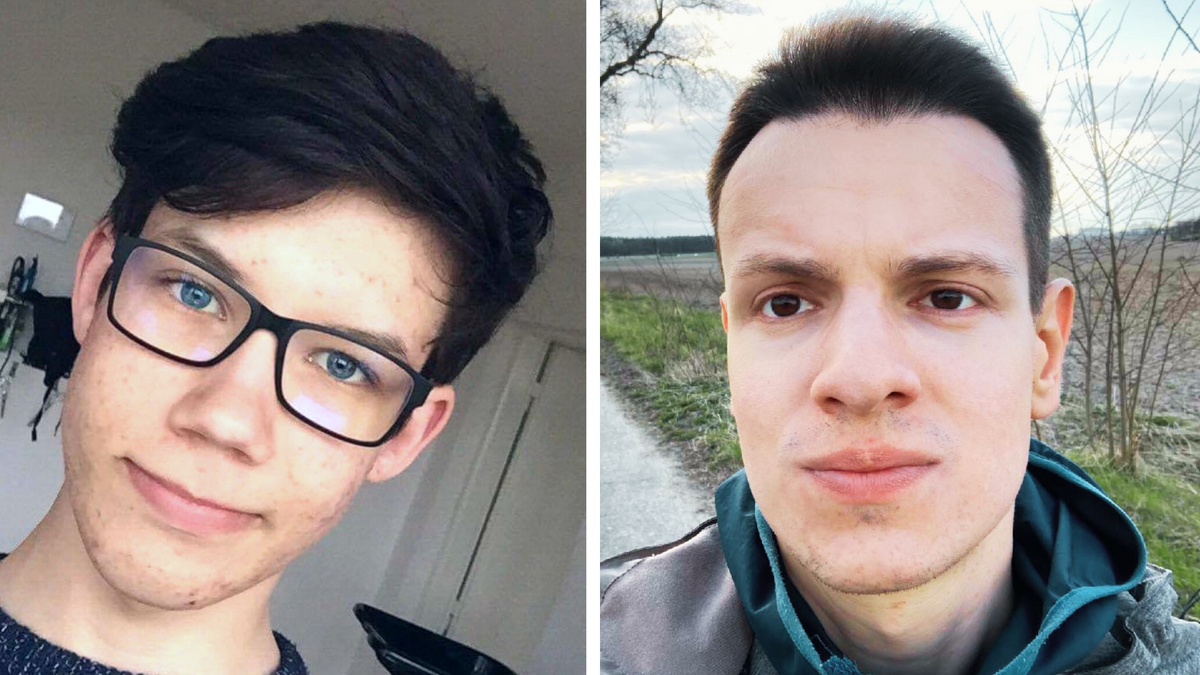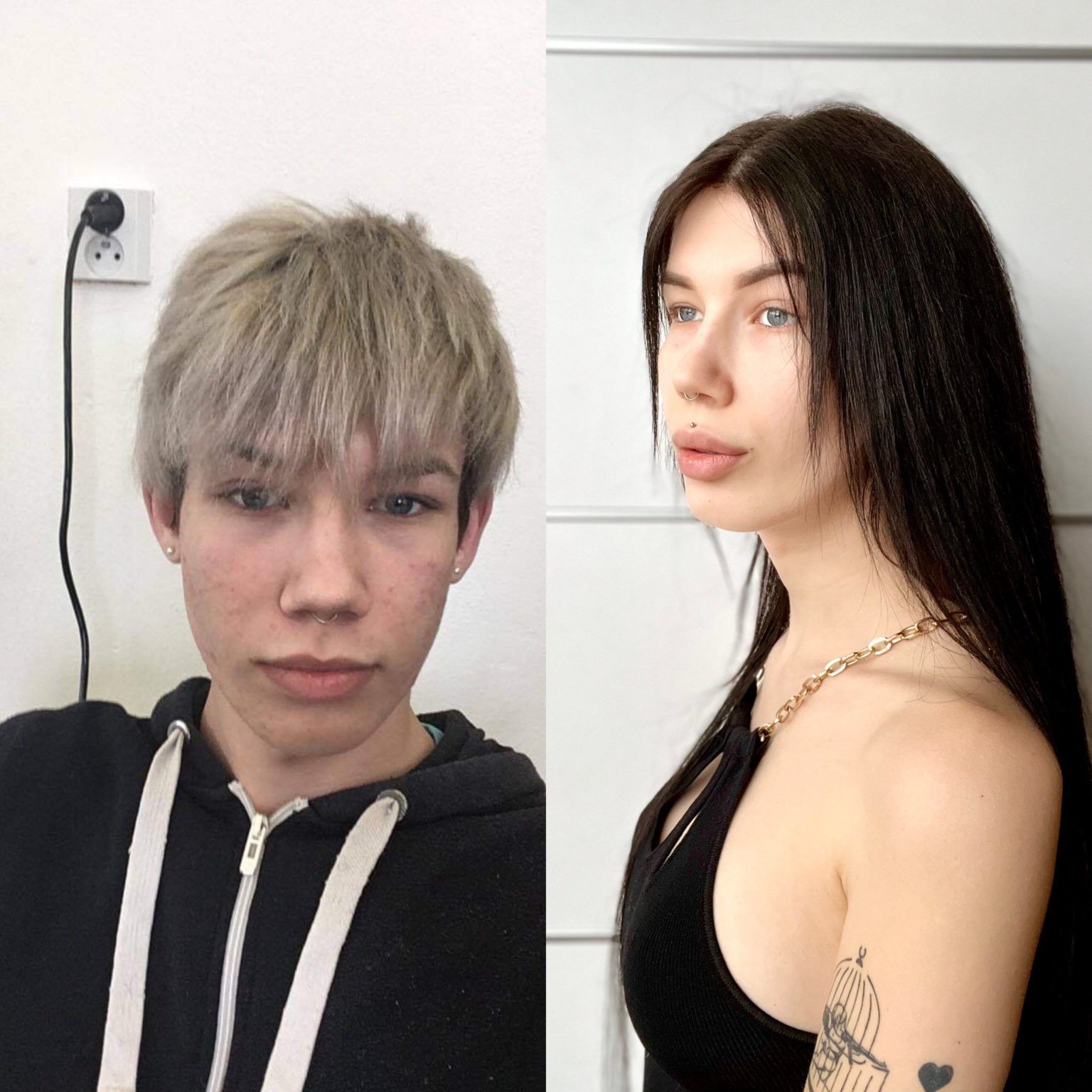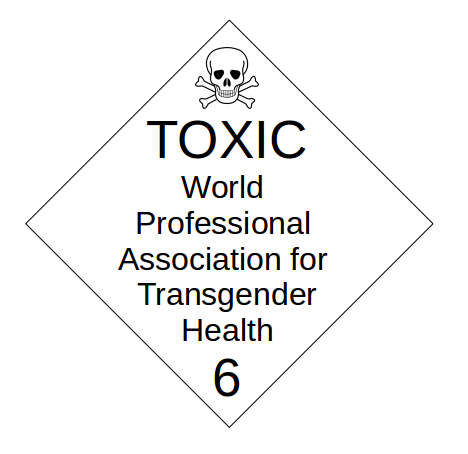Polish and Czech Male Detransitioners Blow the Whistle on ‘Gender Affirming Care’ in Eastern Europe
No diagnosis or quack diagnosis? Trans-identified youth is allegedly being failed by Polish and Czech health care professionals.

Recently, two male detransitioners have publicly come out in Poland and the Czech Republic, two states that share a border and a Slavic language. Both cases share similarities. Daniel Black from the Czech Republic and Lukasz Sakowski, from Poland, started their “transition” process before 18, the age of legal maturity in the region. They both took hormones and had their legal sex changed to “female.” In another parallel, they both realized their trans identity was a mistake around age 22.
Importantly, both these men encountered health professionals in their respective countries who applied questionable diagnostic criteria and rushed them through the process in an apparent effort to affirm their transgender identity.
In an interview with a Slovak newspaper, Daniel Black (22), who now runs a hairdressing salon in Prague, described his first visit to a sexologist at age 17:
“Half a year after I decided I was a woman, I visited the best-known expert on transgenderism in the Czech Republic, sexologist Hana Fifkova. After a 30 minute long appointment, she told me I was a clear case - she said she had zero doubts that I’m a beautiful girl and sent me along to attend further exams.”
Despite the fact that the diagnosis of transsexuality could officially be set only after subsequent visits to other health professionals, Daniel claims the sexologist tried to book an appointment with a commission that assesses the suitability of undergoing a “sex reassignment surgery” for him during this first meeting.
Next in line was an appointment with a psychologist who gave Daniel two tests. First was a “draw a figure” one, widely used and known in the Czech Republic according to the detransitioner.
“The psychologist tells you: ‘draw a person’ and then ‘draw a person of the opposite sex.’ Depending on the apparent sex of the first figure you draw, the psychologist will assess your felt gender. (...) As I knew about this test from a facebook group, I knew I had to draw a person in a dress first.”
Next, the psychologist gave Daniel a questionnaire with “around 100 questions” that he said took 3 hours to fill in. Most importantly, he described the queries as “extremely sexist.”
“For example: ‘If you were a journalist, you would write about A, cars. B, cosmetics.’ ‘When my washing machine breaks, I know how to fix it, A, yes. B, no.’ ‘I’m able to drill holes in the wall, A, yes. B, no.’”
When Daniel visited Dr. Hana Fifkova again, she said that the psychologist agreed with her transsexuality diagnosis. Subsequently, the sexologist gave him a hormone prescription. Once a month, he visited this doctor for a follow-up and to get a new prescription. According to Daniel, each appointment lasted less than 30 minutes during which Dr. Fifkova asked mostly whether Daniel’s family was okay with his transition and did not inquire how Daniel was feeling.

Poland
Lukasz Sakowski (29), a blogger and biologist, encountered even less pushback from health professionals in Poland. In 2011, before turning 18, he started the process of acquiring a “gender recognition certificate,” in other words, a legal sex change. As he describes in a blog, he first went to a psychologist who was recommended in online forums related to transgenderism as well as officially endorsed by “Trans-Fuzja,” a Polish NGO.
He explained to the psychologist that he had been receiving puberty blockers and hormones for several years from Ewa, a transsexual man he had met online and that his parents didn’t know about it.
“It didn't bother her, quite the contrary. She expressed her enthusiasm that I could ‘be myself’ from such a young age. (...) She also said that if the Court asks questions, I should say that I have been seeing her for a long time, and not just twice - which is really the case - and that I should not say that I took hormones from Ewa. She made me lie.”
Then, the psychologist said that for the next meeting with Lukasz, she would prepare a psychological report confirming his “transsexualism,” and advised him to bring his mother along. At this appointment, Lukasz’s mother expressed worry about the lack of diagnostic tests and the psychologist assured her that her son was indeed “transsexual.” As next steps, Lukasz was supposed to see two other health care professionals.
“She gave me the contact details of her friends, a psychiatrist and sexologist, whose diagnostic certificates about my ‘transsexualism’ were needed for the Court - for legal sex change (so-called gender reassignment) in the documents - and she wished me all the best.”
Lukasz described these two sessions as pro-forma check-ups:
“The visit to the psychiatrist lasted about 10 minutes. She asked me if I had delusions, mood swings, or suicidal thoughts, and then she wrote out a certificate diagnosing transsexualism. She didn't do any research or an actual clinical interview.”
In another similarity to Daniel’s experience in the Czech Republic, this what happened at Lukasz’s visit to the sexologist:
“In turn, a sexologist (also a gynecologist) did not conduct any reliable clinical interview for transgenderism or disorders that could give symptoms of gender dysphoria either, despite the fact that she issued me a certificate with the diagnosis of transsexualism and prescribed hormones. (...) I remember her attitude was extremely reckless: her main remark was that ‘I look great" and she completely dismissed my concerns about my liver with ‘there are more important things to attend to.’”
Different paths, similar result
While both young men encountered “gender affirmation” at almost every step, there are notable differences in their stories. Only Daniel underwent genital surgery. When he turned 18, an esthetic surgeon removed his penis and testicles and created a “neovagina.” Lukasz, in turn, was set to undergo an orchidectomy (removal of the testicles) at 20, but changed his mind right before the operation.
Another major difference lies in the paths that led these young men on their trans-identification journey. Daniel was a feminine boy who experimented with makeup, nail polish and wigs during childhood. For this, his peers bullied him and called him homophobic slurs. The intense and long-lasting emotional abuse convinced him he was gay, despite feeling no attraction towards males.
Jehova’s Witnesses were another contributing factor to Daniel's confusion. His mother was a member and made him attend the cult’s youth group. Here, he was taught that masturbation is evil and sex is only allowed in marriage. According to Daniel, this ideology made him afraid to think about girls, as he was worried about committing sin or being forced to marry young. In high school, considering himself gay, he found a boyfriend and started to follow LGBT-related issues. Thus, he learned about transgenderism and began thinking the identity could apply to him. He claims his belief was affirmed by members of LGBT online groups.
Lukasz’s transgender story started in childhood too, with a realization that he was romantically attracted to other male kids. This caused him distress, because:
“Same-sex couples were not accepted and were actively condemned. In fact, they were ridiculed, and calling someone ‘gay’ was an offensive nickname. As I pondered my future, I increasingly thought that a normal, healthy, gay life would be impossible. I also developed a belief that same-sex attraction is wrong.”
While he was facing bullying from his peers who suspected he may not be straight, the image homosexuals had in the media influenced him as well.
“They often showed pictures from pride parades, in which gays, fetishists and exhibitionists were seen strangely dressed and acting disturbingly. (...) Such media coverage reinforced my belief that homosexuality is something strange and repulsive, and in any case related to disorders”
In 2005, when Lukasz was 13, he saw a TV interview with a transsexual on Polish TV. He researched the topic online and was led to a transgender forum. There, he met a 40 year old trans-identified male who Lukasz calls Ewa and the conversation developed into an online “friendship.”
“I turned to Ewa with my problems regarding identity, orientation, emotions, school and others. She [sic] was usually unemployed, from a small town in the Opolskie Voivodeship, and had plenty of time to write with me. Already in the first stage of our online acquaintance, she [sic] persuaded me to use feminine forms instead of masculine ones. It was persuasion, a suggestion that I should ‘not be afraid’ to write ‘like a girl.’ Over time, there were attempts to convince me that I should wear girlish clothes, apply makeup and nail polish.”
Ewa also cemented Lukasz’s conviction about the evils of homosexuality.
“Ewa, like other trans people - which I found out bluntly when I met many people from this environment - hated gays. She had a keen hatred of homosexuality, which she described to me on numerous occasions. Criticized, ridiculed, devalued, demonized.”
The 40 year old also led Lukasz on the medical path.
“When I was 14, the topic of puberty blockers came up in our conversations. Ewa offered to send me a drug called Androcur. It is a prescription cyproterone acetate, with antiandrogenic activity (inhibits testosterone).” (...) Less than a year after I started taking puberty blockers - when I was about 15 - Ewa also started sending me a prescription-only estrogen medication, and in this case, all kept secret from my family.”
The hormonal “medicine” made both Daniel’s and Lukasz’s mental health worse. Lukasz spent weeks closed up in his apartment, depressed, playing video games and only talking to people online. Daniel’s depressions and suicidal thoughts became worse, he lost his libido and felt much more tired than before.
In Lukasz’s case, the puberty blockers also had grave consequences on his physical health, some irreversible. As a teenager, he developed osteoporosis. Bone density test he underwent at 18 showed he “had almost ¼ loss of bone mass relative to the normal one for my age.” Even after 10 years, having discontinued hormonal medicine, he reports his bone density is still not back to normal. Furthemore, Lukasz will probably never get to change the fact that his pelvis has a female-typical shape and his chest is scarred from surgery to remove hormone-induced gynecomastia (male breast enlargement).
The Czech detransitioner, in turn, will never get his male genitals back and because of the lack of testicles, will have to take testosterone supplements for the rest of his life.
Despite such hardships, the two young men express hope that thanks to their testimonies, less young people will be sent on the same path.
Do you want to bring the "gender madness" to an end? Help us write about it! 4W is able to support our all-female staff and writers thanks to the generous support of our paid monthly subscribers.
Enter your email below to sign in or become a 4W member and join the conversation.
(Already did this? Try refreshing the page!)




Comments